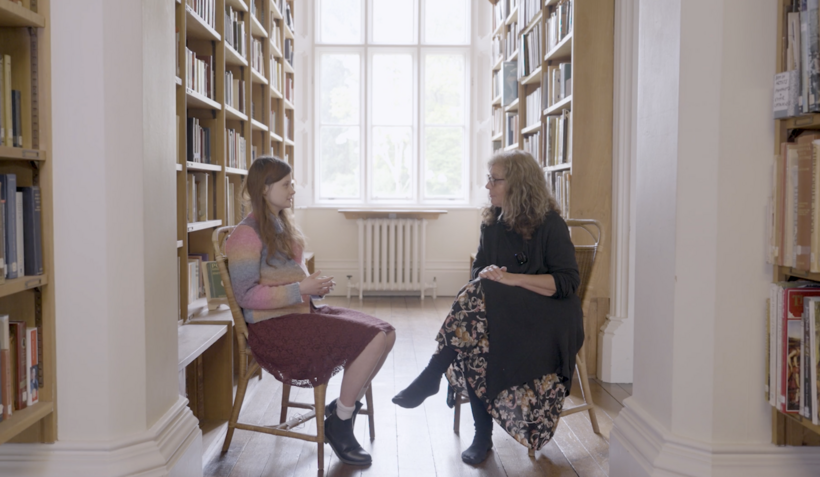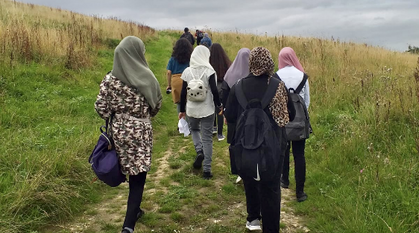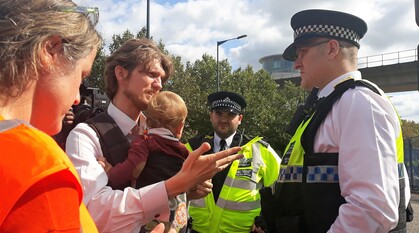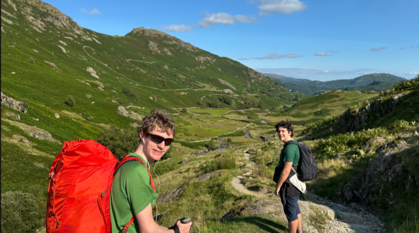You can always ask me: intergenerational conversations about faith
“How much do you think your values have been shaped by Quakerism? Or do you shape Quakerism to your values?"
These and many other searching questions were on the table when young Quakers sat down with older members of the Welsh Quaker community to talk about how their faith affects their lives.

In the Adeiladu Heddwch - Peace Building project, Quakers of different ages sat down together for conversations. Some were filmed and extracts are being shared in a nine-minute video which you can watch on Vimeo. The film's concept was developed by the young people in a series of workshops, focusing on what Quaker testimonies mean to them. It was then filmed at an all-age residential event.
In this blog I'm pleased to share parts of another conversation focused on values and how we share them with others. When Chris asked Morag whether her values were shaped by Quakerism or the other way around, she said, “That's a tricky question, isn't it? I suppose one of the things about Quakerism is the listening for the things in what other people say that speak to you and are opening up ideas."
Chris: When it comes to social issues, how do you interact with non-Quakers? How do you best cooperate with people that might have different values to you?
Morag: Sometimes you discover that people that you think would have really different values haven't got very different ones at all. On my way to London, I was on the train with somebody that I knew from the tennis club and he was going to London as well for a boozy lunch, he said. And he asked why I was going. I thought “Oh, right, here we go. I've got to admit that I'm actually a Quaker, and I'm going to Westminster for a protest."
I knew that he had been in the Army. And he was so unbelievably supportive of what I was doing and why I was doing it. We had the most fantastic conversation all the way there. And he did say, “You know, these friends that I'm going to lunch with, we could potentially all come along and support you."
But then, on the other hand...
I was out with friends I go walking with recently, and one of them was largely advocating that we should massively increase our nuclear capacity so that Putin didn't go just invading anywhere that he wanted to. I just didn't know how to respond to that. I knew that that's not at all what I wanted, but on the spur of the moment, I couldn't think of how to argue against this person who is unexpectedly being really argumentative about this. In the end, I just had to say that I couldn't talk to him about it anymore.
I think what I took away from that was that I needed to go and practice having that sort of discussion with somebody else, so I knew better what it was that I was trying to say. Maybe I needed to start from feelings and the real basis of peace, rather than trying to remember statistics and arguments for why nuclear armament isn't a good idea. It is really difficult.
Morag: Have you had any situations where you had to stand up and say, I'm not doing this, or I am doing this, because I'm a Quaker?
Chris: One of the first things that I did when I was a Quaker, I was part of quite a military part of Scouts. One of the things we'd done was we actually shot air rifles. That was one of the things that made me realise how violent guns are. Until I was actually sitting there at the end of a gun and feeling it, I didn't actually quite realise how awful they are.
Then later, when I became a Quaker, in Scouts we were supposed to skin and eat a squirrel. It was part of teaching bushtucker survival skills on a squirrel. And I said I wasn't doing that because I'm a Quaker. That's quite minor, though that is something that I have done. I did leave Scouts because it didn't really align with a lot of my values.
Any more questions?
At the end of the conversation, when they wondered whether there were more questions, Chris said, “I don't think so. I'll go away from here and I'll think 'I should've asked, this and this and this, but ...'"
Morag replied, “Well, you can always ask me."


